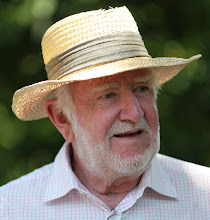The ANC has raised the spectre of land restitution without compensation. Zimbabwe, here we come, has been the general reaction. So when UCT's Summer School offered a course "The land question in South Africa", I felt I had to go.
The course was led by Prof Ntsebeza of UCT's African Studies department. It started with a description of the problems faced by rural folk, who have tenuous tenure of their land courtesy the local Chief. Many of the Chiefs are from families that were granted chiefly status by the apartheid regime, to administer Government policy in their "Bantustan". When democratic government arrived, they moved seamlessly to similar status in the tribal authority adminstering the land. Not surprisingly, there is a level of resentment among those so administered, particularly as the tribal authorities show some of the characteristics of apartheid apparatchiks.
In the Eastern Cape, the King appointed Headmen to villages. The hierarchy is King, each of whom has 20 or more Chiefs reporting to him; each Chief has about 10 Headmen; and each Headman looks after one or more communities. But some communities, years ago, had elected their Headmen, and felt very aggrieved at having outsiders thrust upon them.
A community under the KwaGcina Traditional Council was so miffed that it took the Council and King to court when they refused to allow an election. The community won. The National Government, King and Council appealed - and lost. A Headman was duly elected.
This precedent looks like changing the political structures in rural areas. No longer can the government of the day rely on voter fodder being herded towards them by compliant Headmen. Indeed, the change has already spread so far that an imposed Chief has been rejected.
One of the problems of the tribal structures is that they are are supposed to work closely with local government. There is even a Co-operative Governance Act defining the relationship between the two. However, it is the cause of a real turf war, with local government being frustrated in its efforts at every turn. The end result is inevitable - rural dwellers have no effective service delivery, no schools,no clinics or hospitals, no transport systems.
Government is doing what it can to resolve the impasse, which is really of their own making. Originally land was to be a local government responsibility, but under presure from the traditional leaders, the ANC gave way and allowed the tribal authorities to continue their administration. There are signs that they are working to rectify this. For instance, in KwaZulu Natal, Government is threatening to remove the Ingonyama Trust of some 28 000 square kilometers from the control of King Zwelethini.
I came away from the course with a very different view of land reform in South Africa. I no longer believe the Zimbabwe example has any relevance. Rather, I believe we are seeing a democratisation of South Africa which will give us a stronger future, with the associated disappearance of the tribalism which has proved so divisive to our people.
Subscribe to:
Post Comments (Atom)


No comments:
Post a Comment